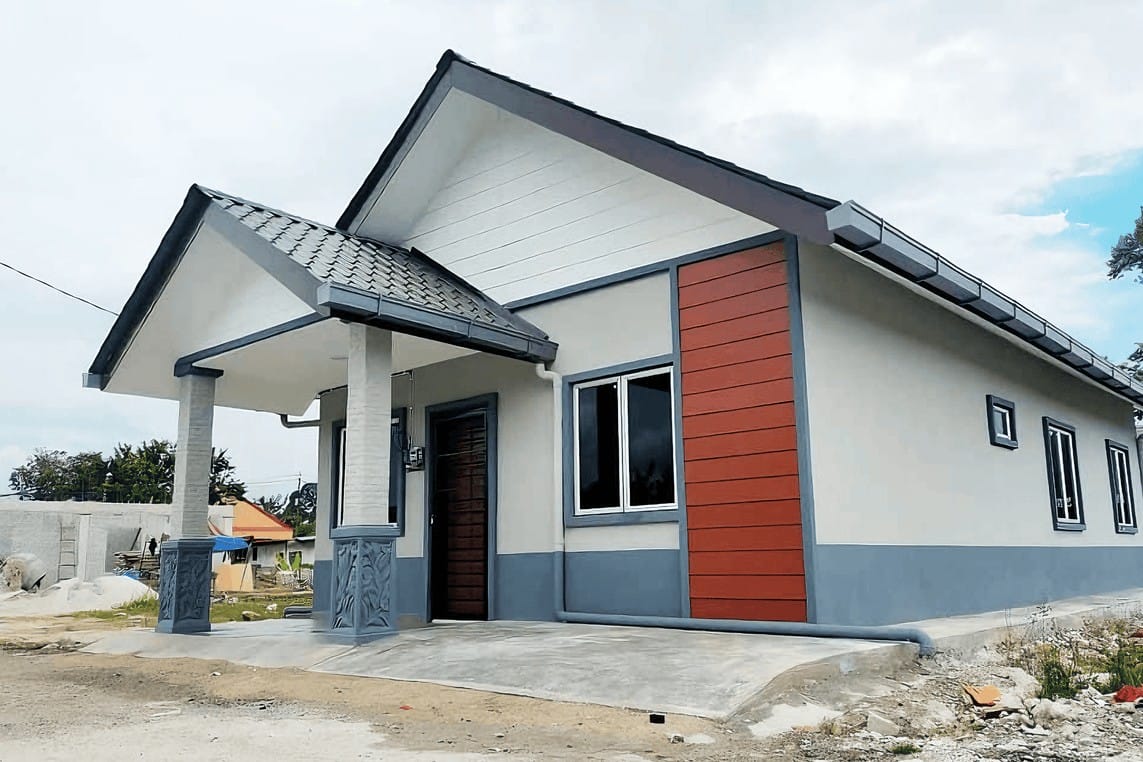
Blog
Why Skimping on Electrical Work Could Put Your Family’s Safety at Risk | RumahHQ

Alright, picture this: you’re settling in for a cozy night at home, maybe binge-watching your favorite series, when suddenly the lights flicker, and you hear that ominous buzzing sound from the wall. It’s creepy, right? But here’s the thing—many of us often don’t think twice about the electrical work in our homes, especially when it comes to saving a few bucks. Whether it’s dodging that pricey electrician or trying to tackle a DIY fix, skimping on electrical work can turn your safe haven into a potential hazard. In Malaysia, where monsoon storms and humidity can wreak havoc, understanding the importance of proper electrical installations and maintenance is crucial for keeping your family safe. Let’s dive into why cutting corners on this vital aspect of home safety can have consequences that are more shocking than you might imagine!
Understanding the Hidden Dangers of DIY Electrical Repairs
When tackling electrical repairs at home, many people underestimate the potential hazards involved. DIY electrical work can often seem like a cost-effective solution, but the reality is that the risks are much higher than the savings. Faulty wiring, overloaded circuits, and even mismatched voltage ratings can lead to dangerous situations such as electrical fires or severe shocks. It’s essential to recognize that what may appear to be a minor issue can quickly escalate into a significant safety concern.
In Malaysia, the climate can exacerbate electrical issues due to high humidity levels leading to corrosion and damp conditions. This is especially true for wiring that is not properly insulated or sealed. Homeowners might think that a quick fix will suffice, but relying on temporary solutions instead of professional help rarely ends well. Here are some hidden dangers to consider:
- Inaccurate Diagnosis: You might think you know what the problem is, but without expertise, you may misdiagnose the issue.
- Locating Circuit Breakers: Not knowing your main electrical panel location can leave you unprepared for emergencies.
- Using Improper Tools: The wrong tools or techniques can damage your electrical system further.
Moreover, a common misconception is that more power outlets equal better safety or convenience. In reality, overloading outlets is a frequent cause of house fires. Improperly connected wires can create resistance, generating excessive heat. For better understanding, consider the comparison below:
| DIY Approach | Professional Service |
|---|---|
| Cost savings in the short term | Long-term investment in safety |
| Higher risk of serious errors | Expertise reduces chances of accidents |
| Limited knowledge of codes | Full compliance with safety standards |

The Importance of Hiring Licensed Electricians for Safety
When it comes to electrical work, trying to cut corners can lead to disastrous outcomes. Licensed electricians possess specialized knowledge and skills that are crucial for ensuring safe installations and repairs. Unlike DIYers or unlicensed workers, these professionals are trained to understand the intricacies of electrical systems, adhering to strict safety regulations that are designed to protect your home and family. Their expertise not only helps in the prevention of electrical fires but also ensures that installations meet all local standards. Skipping this vital step can turn a simple electrical upgrade into a potentially deadly hazard.
One major aspect to consider is the importance of proper wiring. Faulty wiring can cause a multitude of problems, including overheating, short circuits, and even full-blown electrical fires. By hiring a licensed electrician, you can avoid these issues because they conduct thorough inspections, use quality materials, and apply best practices during installation. Here’s a quick look at the benefits:
| Benefit | Description |
| Compliance | Meets local codes and regulations. |
| Safety | Reduces risks of accidents and fires. |
| Insurance | Better insurance coverage with licensed work. |
Additionally, licensed electricians provide peace of mind. They typically carry liability insurance, which means that if something goes wrong during the work, you’re not left holding the bag. This is crucial in avoiding unexpected costs and liabilities down the line. Moreover, most licensed professionals offer warranties on their services, giving you even more assurance that the job will be completed to a high standard. Considering these factors, investing in licensed electrical services isn’t just about compliance; it’s about safeguarding your family’s well-being.

Common Electrical Mistakes That Could Endanger Your Home
When it comes to electrical work, cutting corners can lead to real consequences for your household. One common mistake is using the wrong gauge of wire for your electrical needs. Insufficiently rated wires can overheat and pose a fire hazard, making it crucial to choose the right size for the load. Additionally, some homeowners may opt to use extension cords as permanent solutions instead of installing proper outlets. This improper use can cause overheating and increased wear, resulting in potential electrical fires.
Another frequent error is ignoring the importance of circuit breakers. Failing to install the adequate number of breakers or using outdated ones can leave your home vulnerable to electrical overloads. An overloaded circuit is like a traffic jam; it can cause significant disruptions and lead to severe damage. Make sure your electrical system is equipped with modern circuit breakers that can respond quickly to surges, safeguarding your appliances and family.
Furthermore, many people underestimate the risks associated with DIY electrical work. Attempting to tackle electrical repairs or installations without proper knowledge can lead to catastrophic results. Even simple tasks, such as replacing a light switch or adding a fixture, can quickly become perilous. If you’re unsure about your capabilities, it’s best to consult with a qualified electrician to ensure that everything is safe and compliant with local codes. In the long run, investing in professional help can save you from costly repairs and enhance your family’s safety.

How Electrical Failures Can Lead to Fire Hazards
Electrical failures often begin with minor issues that can quickly escalate into serious hazards. Faulty wiring, overloaded circuits, and damaged electrical appliances are just a few culprits that may not seem alarming at first but can compromise safety. When circuits are overloaded, they heat up and may cause insulation to melt, which significantly increases the risk of a fire. Neglecting these warning signs can not only affect your appliances but also endanger your family’s safety.
Moreover, even something as seemingly benign as using non-certified wiring or cheap components can lead to disastrous situations. It might save a few ringgit in the short term, but those savings can seem trivial when matched against the potential costs of fire damage or worse—loss of life. Inadequate circuit breakers and poor connections can create dangerous hotspots, which are prime candidates for igniting fires. Just like how providing your car with marginal fuel may keep it running for a bit, skimping on quality electrical work can leave you vulnerable in the long run.
The table below illustrates common electrical failures and their potential fire hazards:
| Electrical Issue | Potential Hazard |
|---|---|
| Overloaded Circuits | Overheating and Fire Risks |
| Old Wires | Insulation Breakdown |
| Mismatched Circuit Breakers | Inadequate Protection |
| Loose Connections | Sparks and Fire |
To sum it up, being proactive about your electrical system is crucial. Regular inspections and investing in quality materials can make all the difference in ensuring safety. Ignoring the small issues can eventually lead to larger, more destructive problems. Remember, it’s better to address the potential risks head-on than to deal with the aftermath of an electrical disaster.

Recognizing the Signs of Poor Electrical Work in Your Home
When it comes to electrical work, being aware of the warning signs can make a serious difference in ensuring your home remains safe. Here are a few red flags that might indicate subpar electrical work:
- Frequent tripped breakers: If the circuit breakers in your home seem to trip more often than they should, it could be a sign of overloaded circuits or poor wiring.
- Flickering lights: A light that flickers frequently can signal a loose connection or an overloaded circuit that needs attention.
- Unusual smells: If you notice a burning odor coming from outlets or switches, it’s not just annoyance—it’s a serious hazard.
Of course, the physical aspects of your electrical system also matter. Keep an eye out for:
- Exposed wires: Any visible wiring should be taken seriously. If you see wires hanging out or frayed cables, this is a major safety concern.
- Inconsistent outlet operation: If some outlets work intermittently or have a mind of their own, it might mean there’s a deeper issue at play.
- Rust on components: Corrosion can affect the performance of electrical parts, leading to potential failure or worse.
Want to know how you can differentiate between safe and dangerous electrical installations? Here’s a quick comparison:
| Signs of Quality Work | Signs of Poor Work |
|---|---|
| Well-organized wiring | Cluttered or tangled wires |
| Properly grounded outlets | Ungrounded or loose connections |
| Compliant with local codes | Disregarding safety regulations |

Routine Electrical Inspections: A Necessity for Family Safety
Regular electrical inspections are essential for ensuring safety in homes. Think of these inspections like a health check-up for your electrical system—just as you would see a doctor to ensure you’re in good health, your home deserves the same attention. During these inspections, licensed electricians can identify potential hazards, outdated wiring, and faulty connections before they escalate into severe problems. By being proactive, you not only prevent accidents but also extend the life of your electrical systems.
When you schedule an inspection, here’s what you can expect to be reviewed:
- Wiring Conditions: Inspecting cables and connections for signs of wear and tear.
- Circuit Breakers: Ensuring they function correctly and aren’t overloaded.
- Outlet Functionality: Checking if outlets are correctly grounded and safe to use.
Staying on top of your electrical health can save you money in the long run by avoiding costly repairs due to negligence. It’s not just about preventing fires or shocks; it’s also about protecting what matters most. Consider this table highlighting the common issues found during inspections:
| Common Issues | Risks | Potential Costs |
|---|---|---|
| Frayed Wires | Electrical Fires | Up to RM10,000 |
| Overloaded Circuits | Equipment Damage | RM1,000 – RM5,000 |
| Improper Grounding | Electric Shock | Medical Bills + RM50,000 |

Investing in Safety: The Long-Term Benefits of Quality Electrical Work
When it comes to electrical work, taking shortcuts might save a few ringgit in the short term, but the long-term consequences can be dire. Your home is your sanctuary, and ensuring that it’s equipped with high-quality electrical systems is key to maintaining a safe environment for your family. Well-executed electrical installations not only reduce the risk of electrical fires and outages but also enhance energy efficiency, leading to lower utility bills over time. The right electrical setup can make home life more comfortable by avoiding unnecessary inconveniences caused by poor workmanship.
Consider the peace of mind that comes with knowing you’ve invested in professional electrical services. Here are a few benefits that can arise from prioritizing quality over costs:
- Increased Safety: High-quality materials combined with expert installation can significantly reduce the risk of electrical accidents.
- Longer Lifespan of Electrical Systems: Properly installed systems with higher-quality components last longer, reducing the need for frequent replacements.
- Improved Home Value: Many homebuyers appreciate and favor houses that boast high-quality electrical work, potentially boosting your property’s market value.
Furthermore, investing in certified electricians ensures compliance with local regulations, shielding you from potential legal and financial troubles in the future. It’s easy to overlook the intricacies of electrical systems, but they play a vital role in your overall home safety. To illustrate this further, here’s a quick comparison of the potential costs associated with subpar versus quality electrical work:
| Aspect | Short-Term (Skimping) | Long-Term (Quality Work) |
|---|---|---|
| Installation Cost | Lower initial expense | Higher upfront investment |
| Risk of Fire | Higher probability | Minimal risk |
| Energy Efficiency | Inconsistent | Consistently higher |
| Property Value | Potential decrease | Increased value |

Empowering Your Family: Electrical Safety Tips for Every Household
Every household relies heavily on electricity for daily activities, so it’s crucial to ensure that your electrical systems are in top-notch condition. Cutting corners on electrical work may seem like a way to save money, but it can lead to serious consequences, not just to your wallet but to your family’s safety as well. Over time, faulty wiring, outdated circuits, and subpar installations can increase the risk of electrical fires, shock hazards, and electrical surges that could damage appliances or pose a life-threatening danger to loved ones.
Proper electrical work isn’t just a matter of convenience; it’s a safeguard against potential disasters. Here are a few essential tips to keep your home safe:
- Choose Licensed Professionals: Always hire a certified electrician for installations and repairs to ensure the job is done safely and correctly.
- Regular Inspections: Schedule periodic assessments of your electrical systems, especially in older homes where wear and tear can lead to hazards.
- Upgrade Outdated Systems: Consider updating old circuit breakers and electrical panels to handle modern energy demands efficiently.
Understanding the importance of good electrical work can save your family from potential dangers. Here’s a quick comparison of the risks associated with amateur vs. professional electrical work:
| Aspect | Amateur Electrical Work | Professional Electrical Work |
|---|---|---|
| Cost Efficiency | Short-term savings | Long-term safety and reliability |
| Risk of Fire | Higher due to poor installation | Minimized with proper techniques |
| Quality Assurance | No guarantee | Backed by warranties and codes |
Final Thoughts
folks, it’s clear that cutting corners when it comes to electrical work isn’t just a matter of saving a few bucks. It’s about ensuring your home is a safe haven for your loved ones. We get it—money can be tight, and DIY projects can seem tempting. But trust us, no one wants to face the heartache that comes with electrical mishaps.
So, the next time you think about skimping on that wiring job or ignoring that flickering light, remember: your family’s safety is priceless. Investing in a qualified electrician can save you a whole lot more than just money in the long run. It’ll give you peace of mind knowing that when you flip that switch, it’ll light up without a hitch.
Stay safe, choose wisely, and keep those electrical worries at bay. Your home deserves the best, and so do you!
kontraktor rumah
bina rumah
pinjaman lppsa
pengeluaran kwsp
spesifikasi rumah
rumah batu-bata
pelan rumah
rekabentuk rumah
bina rumah atas tanah sendiri
kontraktor rumah selangor
rumah banglo
Source link











